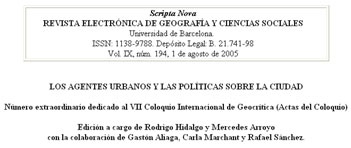Low income-housing residential development urban legislation. Bogota`s practice
Keywords:
urban legislation, low income housing, progressive urban, urban development planningAbstract
The phenomenon of shaping up the city in spite of government urban policies, is the Colombian main cities occurrence, due to the fact the urban development has been associated to the building of residential complexes which target is the poorest section of the cities population. All through the decade of the 60's, the Colombian Government settled on facing this problem by means of the implementation of a model based on a deprived urban code to be developed in a certain period by the land developers, leaving the building to the dwellers of the future residential units. As a result, the city of Bogotá issued an urban legislation focused on the accomplishment of progressive urban development parameters that would allow certain building improvements to be met within a certain period. At present time, by means of the declaration of the City Development Master Plan, the conditions for the shaping up of the city borders and for the building of low income housing projects calls for radical changes, even though it has to be reviewed.Downloads
Published
2007-06-07
Issue
Section
Articles
License
Los autores que publican en esta revista están de acuerdo con los siguientes términos:
- Los autores conservan los derechos de autoría y otorgan a la revista el derecho de primera publicación, cin la obra disponible simultáneamente bajo una Licéncia de Atribución Compartir igual de Creative Commons que permite compartir la obra con terceros, siempre que estos reconozcan la autoría y la publicación inicial en esta revista.
- Los autores son libres de realizar acuerdos contractuales adicionales independientes para la distribución no exclusiva de la versió de la obra publicada en la revista (com por ejemplo la publicación en un repositorio institucional o en un libro), siempre que se reconozca la publicación inicial en esta revista.





